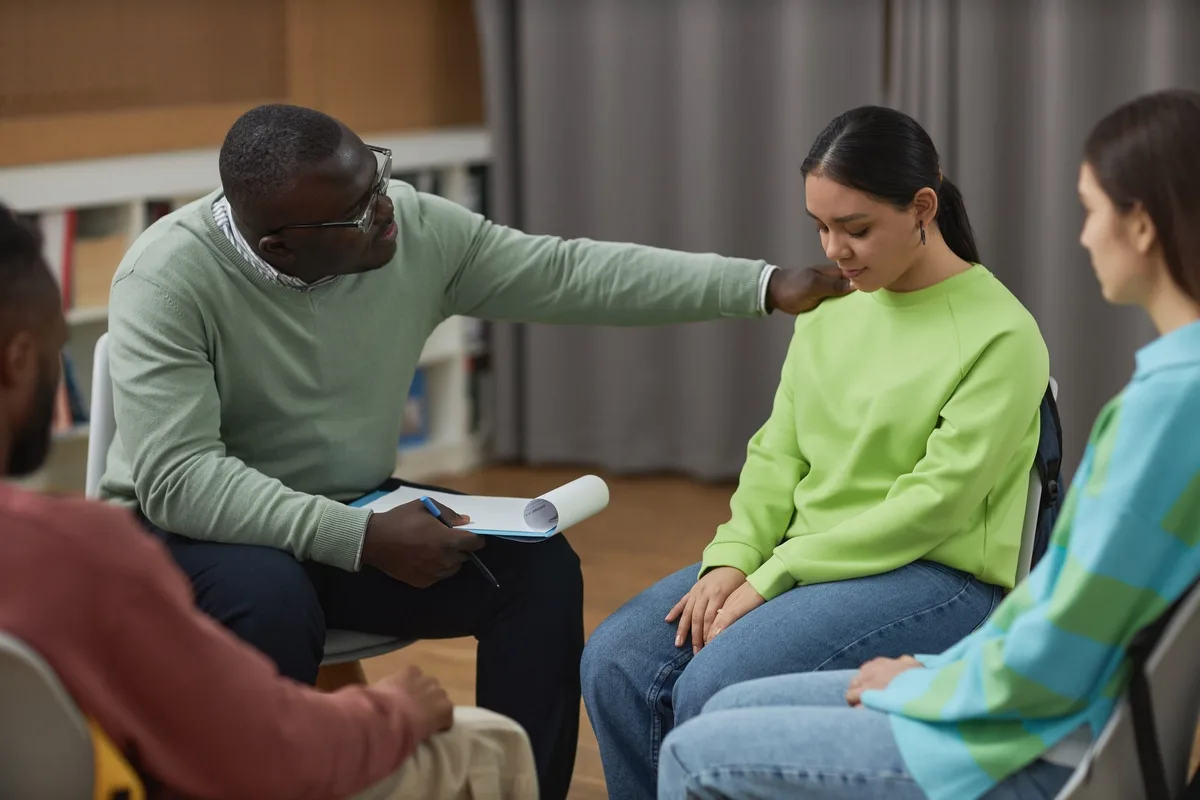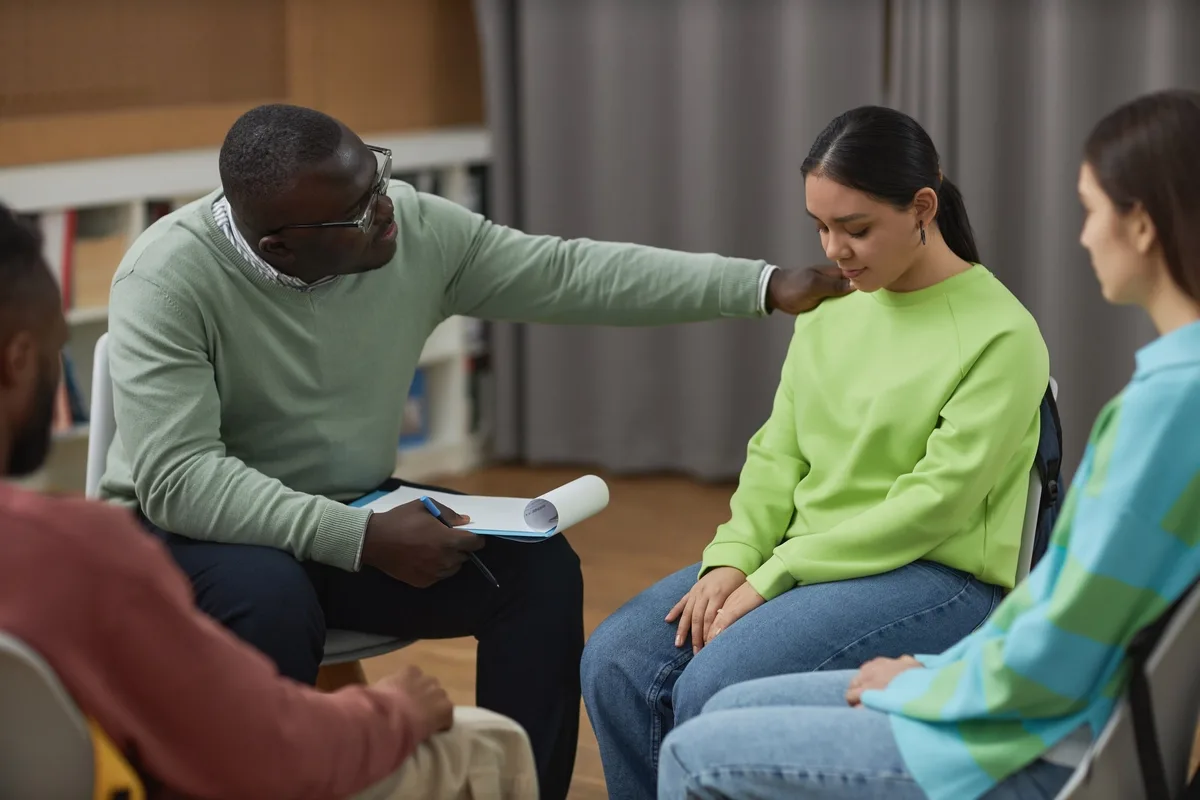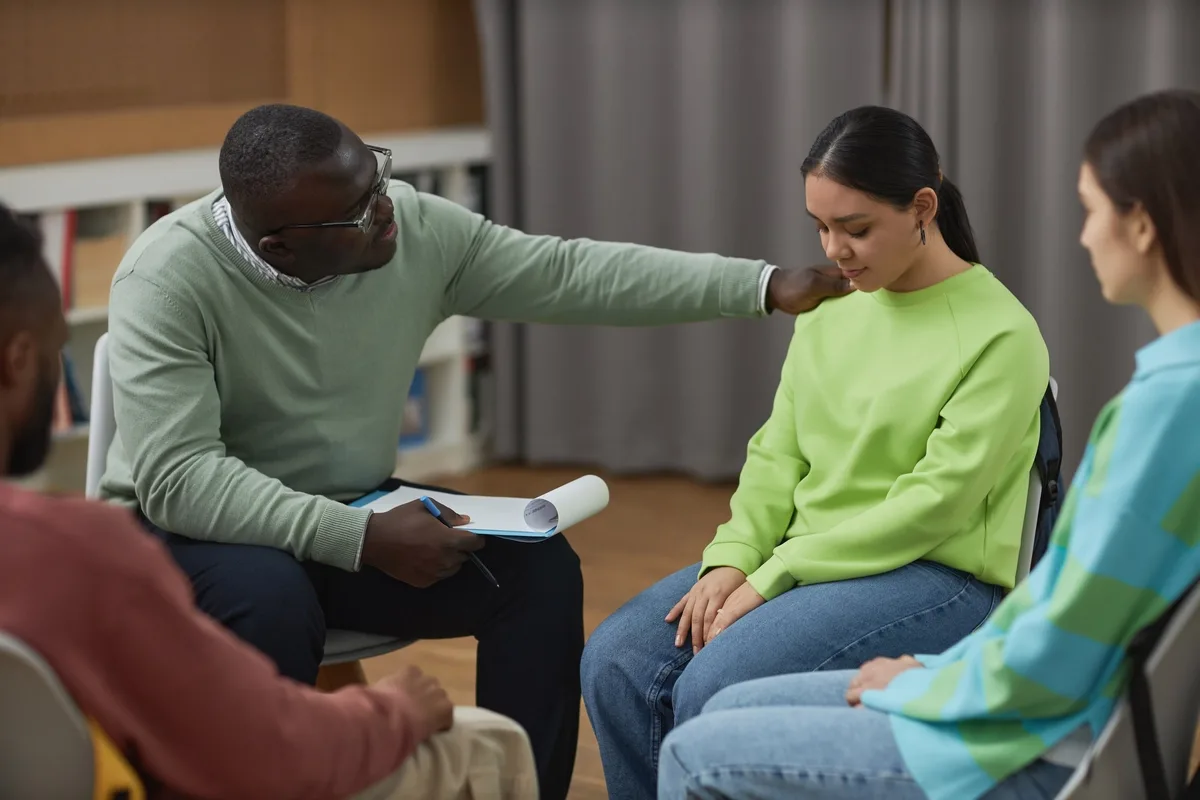24/7 Helpline:
(866) 899-221924/7 Helpline:
(866) 899-2219
Learn more about PTSD Treatment centers in Coweta County

Other Insurance Options

Absolute Total Care

Molina Healthcare

Amerigroup

Evernorth

Excellus

Multiplan

Health Net

EmblemHealth

Anthem

Meritain

BlueCross

Carleon

Access to Recovery (ATR) Voucher

MHNNet Behavioral Health

Covered California

UMR

Ceridian

Coventry Health Care

Group Health Incorporated

Oxford

Center of Renewed Promises
Center of Renewed Promises is a private rehab located in Newnan, Georgia. Center of Renewed Promises...

S and T Assessment and Counseling Service
S and T Assessment and Counseling Service is a private rehab located in Newnan, Georgia. S and T Ass...

Grace Harbour
Grace Harbour is an outpatient mental health clinic that serves individuals from all ages in a holis...









































Pathways Center
Pathways Center is a public rehab located in Newnan, Georgia. Pathways Center specializes in the tre...

Treatment Center of America – Newnan
Treatment Center of America – Newnan is a private rehab located in Newnan, Georgia. Treatment Center...

AA – Alcoholics Anonymous
AA – Alcoholics Anonymous is a non-profit rehab located in Newnan, Georgia. AA – Alcoholics Anonymou...























































































